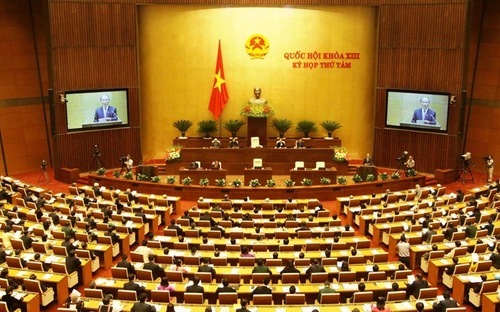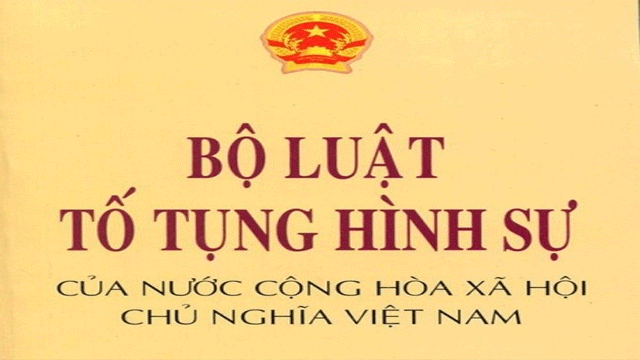What is appellate trial in criminal proceeding? Which court has appellate jurisdiction in criminal proceedings? - Thanh Mai (Tien Giang, Vietnam)

Vietnam: Which court has appellate jurisdiction in criminal proceedings? (Internet image)
1. What is appellate trial in criminal proceeding?
According to Clause 1, Article 330 of the Criminal Procedure Code 2015, appellate trial means that the immediate superior Court re-tries a case or re-considers the decisions passed by the first instance court, whose judgments and rulings pronounced for the case are appealed before coming into force.
2. Appellate jurisdiction in criminal proceedings in Vietnam
According to Article 344 of the Criminal Procedure Code 2015, appellate jurisdiction is stipulated as follows:
- A provincial People’s Court shall have appellate jurisdiction over a district People’s Court's judgments and rulings being appealed.
- The higher People’s Court shall have appellate jurisdiction over a provincial's judgments and rulings being appealed. However, such appellate jurisdiction shall be subject to territorial jurisdiction.
- A military court of a military zone shall have appellate jurisdiction over a local military court's judgments and rulings being appealed.
- The Central military court shall have appellate jurisdiction over the judgments and rulings that were passed by a military court of a military zone and are being appealed.
3. Scope of appellate jurisdiction in criminal proceedings in Vietnam
In the scope of appellate trial under Article 345 of the Criminal Procedure Code 2015, an appellate court shall review the content of sentences and rulings being appealed. It can review other parts of such sentences and rulings, which are not appealed, if necessary.
4. Time limit for appellate trial preparation in criminal proceedings in Vietnam
According to Article 346 of the Criminal Procedure Code 2015, the time limit for appellate trial preparation is as follows:
- A provincial People’s Court or military Court of a military zone must start the appellate trial in 60 days upon the receipt of the case file. The higher People’s Court or Central military court must begin the appellate trial in 90 upon receiving the case file.
- Upon the admission of a case, the provincial People’s Court and military court of the military zone, in 45 days, or the Higher People’s Court and Central military court, in 75 days, must issue one of the following decisions:
+ Terminate the appellate trial;
+ Hear the appellate case;
- In 15 days upon deciding to hear the case, the Court must start the appellate trial.
- The appellate court, in 10 days at most prior to the start of the trial, must send its decision to try the case to the equivalent Procuracy, defense counsels, crime victims, protectors of legitimate rights and benefits of crime victims and litigants, appellants and individuals having duties and interests related to the appeal.
5. Termination of appellate trial in criminal proceedings in Vietnam
Suspension of the appellate trial under Article 348 of the Criminal Procedure Code 2015 provides as follows:
- The appellate court shall terminate the appellate trial when the appellant or Procuracy withdraws the entire appeals. The termination of the appellate trial shall be subject to the decisions of the Presiding judge, prior to the start of the trial, or the decisions of the Trial panel, in court. The first-instance court’s sentences shall come into force upon the appellate Court’s issuance of the decision to terminate the appellate trial.
- If the appellant or Procuracy, prior to the start of the trial, withdraws parts of the appeal, which are deemed not to affect other parts, the Presiding judge shall decide to terminate the appellate trial against the parts withdrawn.
- A decision to terminate appellate trial must specify reasons of termination and other details as defined in Section 2, Article 132 of Criminal Procedure Code 2015.
The appellate court, in 03 days upon issuing its decision to terminate the appellate trial, must send such decision to the equivalent Procuracy, the court that held the first-instance trial, defense counsels, crime victims, litigants, protectors of legitimate rights and benefits of crime victims and litigants, appellants and individuals having duties and interests related to the appeal.
Quoc Dat
 Article table of contents
Article table of contents





.Medium.png)
.Medium.png)
.Medium.png)
.Medium.png)
